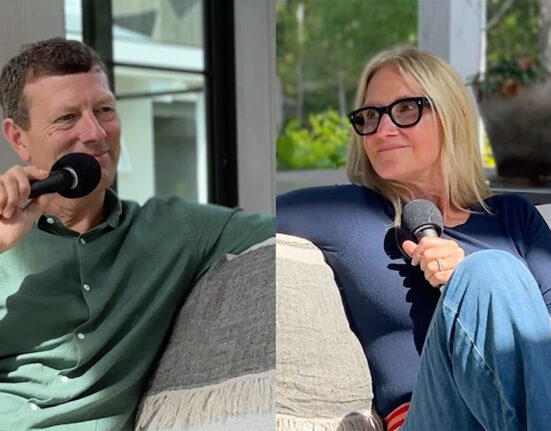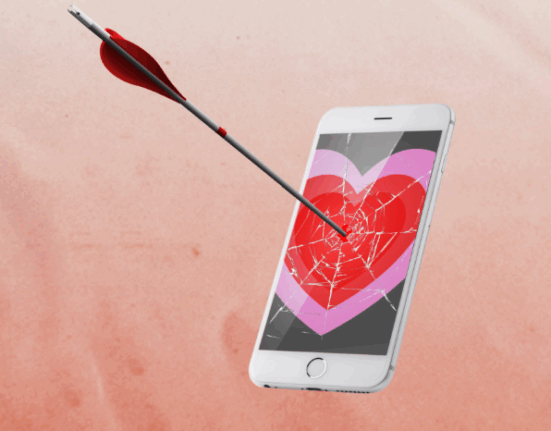Last Updated on May 16, 2021 by Rachel Hall
I might be old and jaded, but at a certain point, new dating apps with pointless gimmicks seem tedious. Take Qemistry, a dating app soon to launch in London. My initial annoyance comes from the spelling – any primary-school child will tell you that if you use the letter “Q”, it must be followed by a “U”, and the confusion over what, exactly, was going on led me to spend a long time looking through different apps designed to teach people about science. Then there was an Urban Dictionary entry which explained that Qemistry is when two members of the lgbt+ community flirt: they have queer-chemistry.
None of the subsequent information I found (when I got the spelling right) suggested that this app was marketed for, or even inclusive of, the lgbt+ community. What’s worse (arguably) is how Qemistry defines itself. It’s supposed to be a cross between TikTok and Tinder, and I steadfastly refuse to believe that anyone actually asked for this. Sometimes mashing two good (or popular) things together can be great, like chocolate and peanut butter, but often you’ll end up with a confusing and unpleasant experience.
Everyone loves dogs, everyone loves pizza… nobody wants dog on pizza
But if you insist, Qemistry basically takes the basic idea used by lots of dating apps (pictures on a profile, swipe right or left) and then adds videos instead. The idea is that you’ll present yourself better? more authentically? if you’re not using a “static” picture. Honestly, I’m sceptical. If I were to scroll through the videos on my phone they would mainly be of my cat or, perhaps, something blurry from a pre-Covid night out.

And if I was sitting alone in my bedroom, setting a Qemistry page up, all I’d do is film myself messing around with a few Snapchat filters. And that really isn’t interesting to anyone, or indicative of who I am as a person. Younger generations might film themselves more, I suppose, for a Reel or TikTok, but I’ve honestly not looked at someone doing the WAP dance and wanted to hook up with them. Ironically, with a fun twist, in a dinosaur costume… It’s just not sexy.
Sure, there may be people who can post funny videos that also make them look attractive – a notoriously difficult line to walk – and according to research done by Qemistry, humour is an important quality in prospective dates. Yeah, duh. I suppose that ‘funny’ videos could be a useful screening tool, though: if you make racist jokes, I don’t want to date you. Of course, there are people who make sexy films for other people and want to show them off. It might be through OnlyFans, or they might share their content for free.
Both are totally valid, but I’d question how many people would have that ready to go. It seems to limit the app’s user base. It’s also been suggested that user’s films could help stop catfishing, but really, I don’t understand how. It isn’t difficult to steal someone else’s content, if that’s a video or a picture. One of Qemistry’s other features is the “student” mode. Instead of showing profiles based on location, “student” mode prioritises other students – it’s all linked through a university email address.
Which, again, seems like a horrible idea!
Nobody wants to walk into a lecture and see their one night stand sitting opposite them, ready to discuss the specifics of chemical engineering. You also probably wouldn’t enjoy a date at the SU if a previous hookup was sitting at the next table. Of course, there are some more serious concerns: relationships don’t always end well, people can have some awful and traumatic experiences and nobody would want to be on campus with a stalker.
Sharing your location and some possibly risque videos is a potentially dangerous combination, and we all know how atrocious universities can be at protecting their students from previous abusers who study alongside them. Clearly, though, there’s something that appeals to people. The app hasn’t launched yet but 10,000 people have signed up, and there’s room for more.
What does this tell us?
People are bored and horny after months of lockdown; people are sick of regular photo-based dating apps, or possibly, this thing might just work. At the very least it would take a while to watch all of the videos to figure out if any of them are appealing – and by that point we’ll be able to meet strangers in bars for casual sex, like the good old days. So, what have we learnt?
Qemistry seems like just another strange way to try and force people into awkward dates because really, most humans want to sleep with people they have some kind of connection to, not someone who can do Addison Rae’s top ten dances. If there’s overlap, great, but it seems unlikely. Ultimately, I don’t really believe that Qemistry is here to stay. I don’t see it revolutionising dating like Tinder, or challenging gender roles like Bumble. Qemistry seems like the kind of thing you’d download on a dare and, at best, would end with users gaining a few more followers on TikTok.

Rachel Hall, M.A., completed her education in English at the University of Pennsylvania and received her master’s degree in family therapy from Northern Washington University. She has been actively involved in the treatment of anxiety disorders, depression, OCD, and coping with life changes and traumatic events for both families and individual clients for over a decade. Her areas of expertise include narrative therapy, cognitive behavioral therapy, and therapy for traumatic cases. In addition, Rachel conducts workshops focusing on the psychology of positive thinking and coping skills for both parents and teens. She has also authored numerous articles on the topics of mental health, stress, family dynamics and parenting.








Leave feedback about this